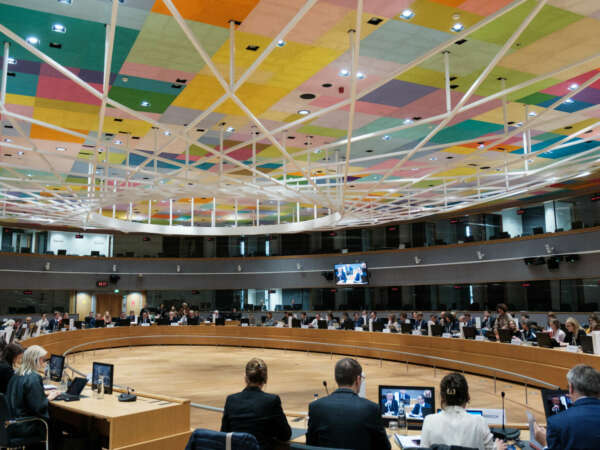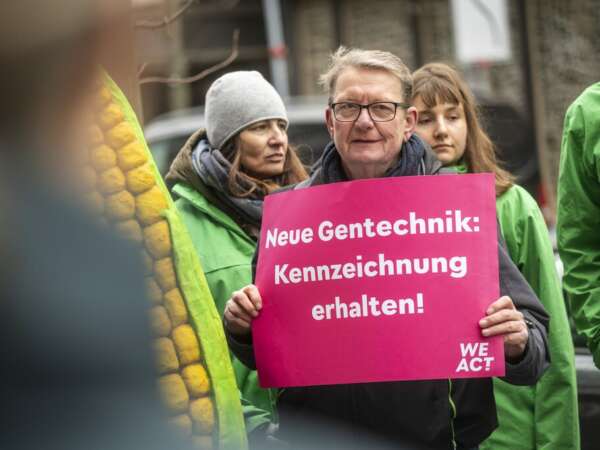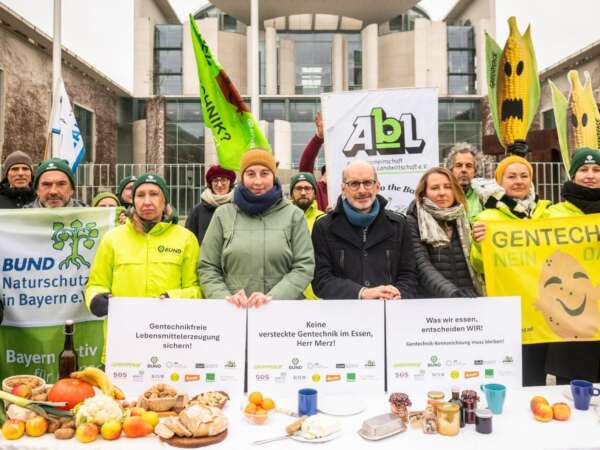Save Our Seeds was founded in 2002 as the Berlin office of the Foundation on Future Farming. Since then, we have been campaigning for responsible regulation of genetic engineering. We work for agroecological and organic innovation in European and global agriculture.
NEWS

EU governments sign off on far-reaching GMO deregulation
Brussels, 19 December 2025 – A qualified majority of EU Member States today backed the deregulation of genetically modified (GM) plants produced using so-called new genomic techniques (NGTs). Austria, Belgium, Bulgaria, Croatia, Germany, Hungary, Romania, Slovakia, and Slovenia did not indicate support during this morning’s meeting of the Committee of Permanent Representatives (COREPER) in Brussels.
Read more

GMO deregulation: Agreement in EU trilogue
In the night of 3 to 4 December, negotiators from the EU Parliament, Council of Ministers and Commission reached an agreement on a far-reaching deregulation of plants engineered with new GM techniques such as CRISPR/Cas. Under the deal, almost all requirements of EU GMO legislation would be abolished for this type of GM plants.
Read more

GMO deregulation: Protest in front of the German Chancellery
Berlin, 2 December 2025 — An alliance of environmental and farming organisations protested today outside the Federal Chancellery against plans to deregulate genetically modified plants created with new genetic modification (GM) techniques. The groups urged the German government to reject any deal emerging from tomorrow’s EU trilogue negotiations unless essential safeguards are included.
Read more
PUBLICATIONS
EU governments sign off on far-reaching GMO deregulation
Brussels, 19 December 2025 – A qualified majority of EU Member States today backed the deregulation of genetically modified (GM) plants produced using so-called new genomic techniques (NGTs). Austria, Belgium, Bulgaria, Croatia, Germany, Hungary, Romania, Slovakia, and Slovenia did not indicate support during this morning’s meeting of the Committee of Permanent Representatives (COREPER) in Brussels.
Read more
GMO deregulation: Protest in front of the German Chancellery
Berlin, 2 December 2025 — An alliance of environmental and farming organisations protested today outside the Federal Chancellery against plans to deregulate genetically modified plants created with new genetic modification (GM) techniques. The groups urged the German government to reject any deal emerging from tomorrow’s EU trilogue negotiations unless essential safeguards are included.
Read more
IUCN backs risky genetic engineering in nature, rejects call for precaution
Abu Dhabi, 15 October 2025 — In a widely anticipated but deeply concerning decision, IUCN members have implicitly endorsed the use of genetic engineering in nature conservation — despite insufficient scientific evidence and the absence of effective regulations to manage its risks.
Read more
